Laboratory Facilities
We are committed to providing ISO standard laboratory services...
This effort aims at offering all our students a broad and balanced experience of both the theoretical and hands on skill.
These facilities are timely calibrated and maintained by certified partners and suppliers
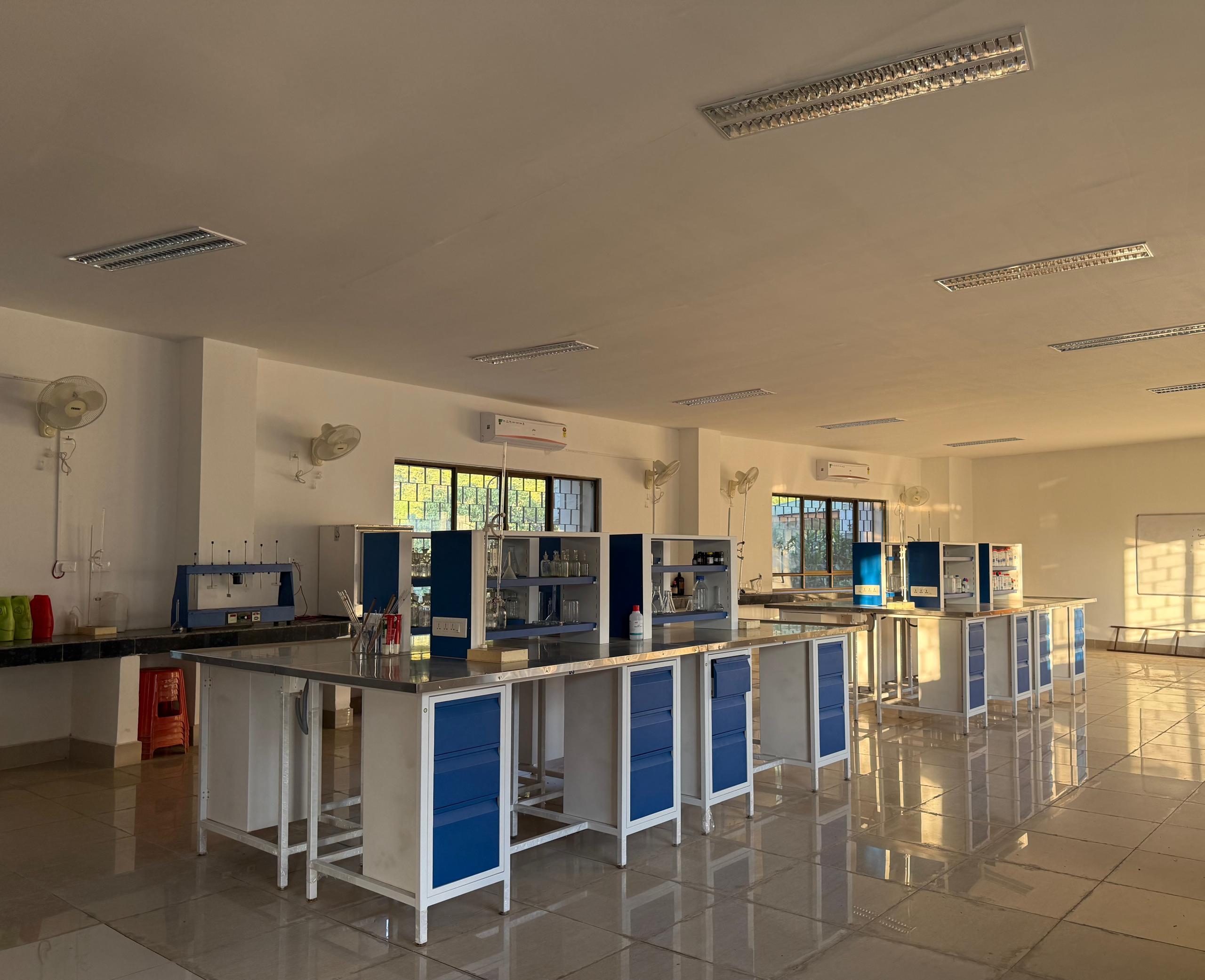
Environmental Lab
Environmental studies in colleges supports teaching and learning by giving students practical experience through activities like water testing, soil analysis, and other environment-related projects, allowing them to apply classroom knowledge to real-world issues, develop scientific and research skills, and gain a deeper understanding of sustainability and environmental protection.
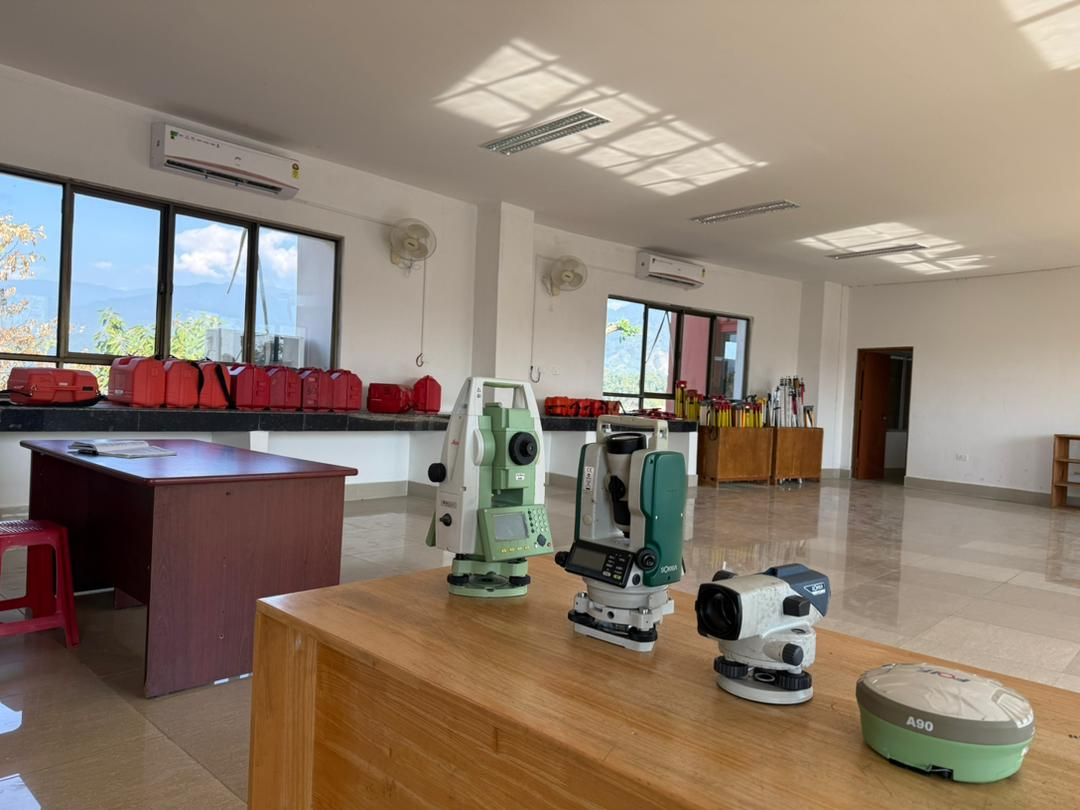
Survey Lab
A survey lab in a College provides students with hands-on training in land surveying, mapping, and measurement techniques. It allows students to practice using surveying instruments—such as total stations, GPS devices, levels, and measuring tapes—to collect and analyze spatial data. Through field exercises and project work, students learn how to create maps, determine land boundaries, measure distances and elevations, and apply surveying principles to engineering, construction, and environmental projects.
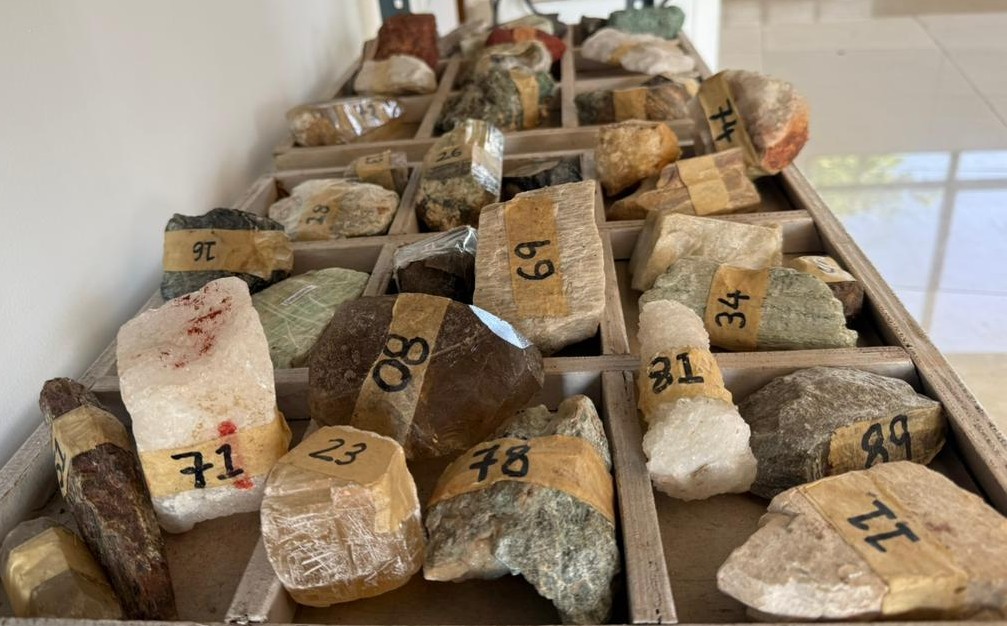
Geology Lab
A Geology Laboratory provides students with hands-on experience in identifying minerals, rocks, and fossils, as well as studying geological structures and Earth processes. Using microscopes, rock samples, maps, and field tools, students learn to analyze the composition, formation, and classification of geological materials. This practical work helps them understand Earth’s history, natural resources, and environmental processes, strengthening their skills for careers in geology, environmental science, mining, and related fields.
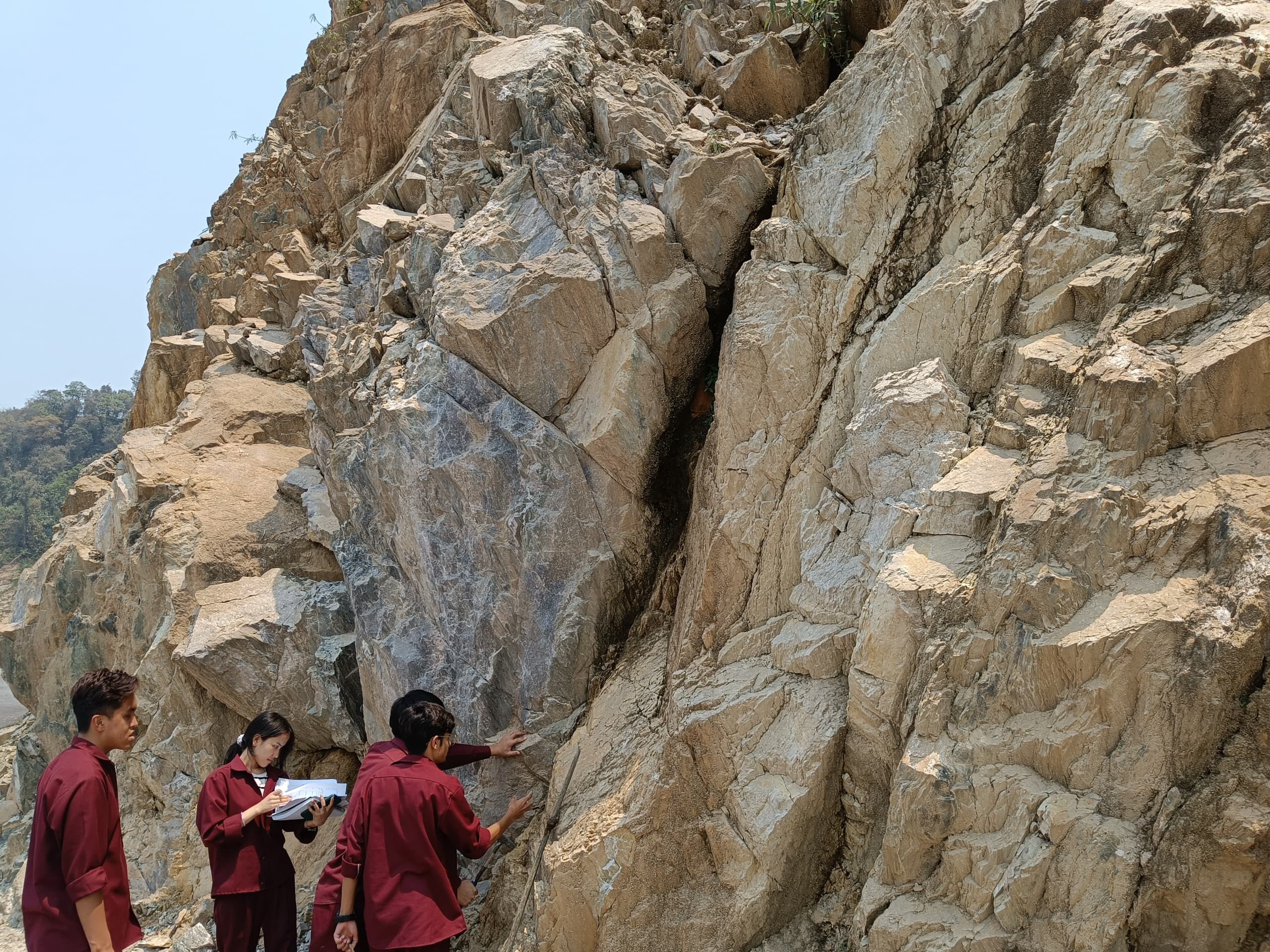
Rock Mechanics Lab
A Rock Mechanics Laboratory allows students to study the physical and mechanical properties of rocks through hands-on testing and experimentation. In this lab, students learn to analyze rock strength, hardness, permeability, and behavior under stress using equipment such as compression testing machines, shear testers, and point-load testers. This practical experience helps them understand how rocks respond to natural forces and engineering activities, preparing them for work in fields like geology, mining, civil engineering, tunneling, and geotechnical design. Great teachers and well-equipped laboratories help students explore, discover and experiment new things under the best supervision.
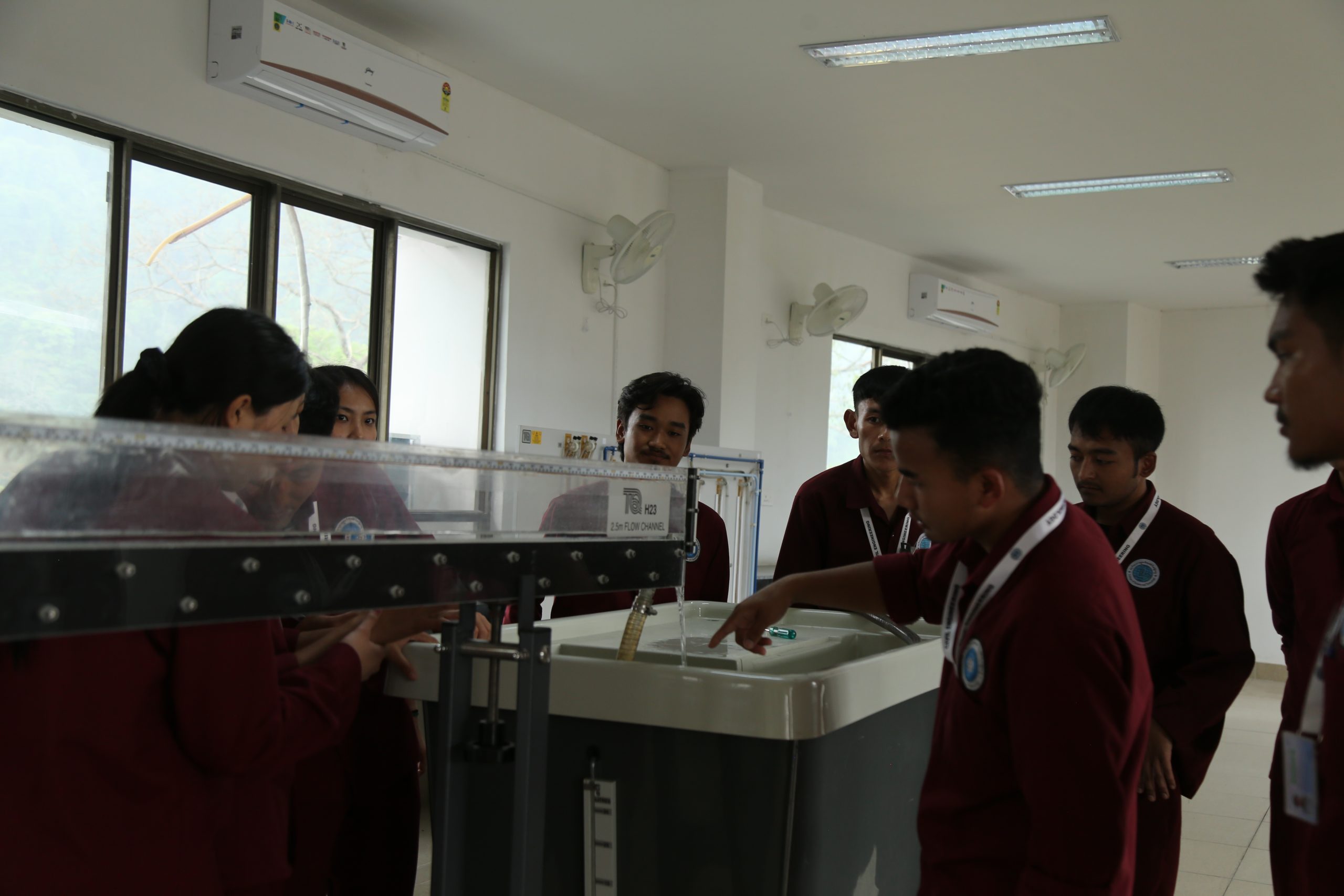
Hydraulic Lab
A Hydraulics Laboratory in a College provides students with practical experience in studying the behavior of fluids, especially water, in motion and at rest. Using equipment such as flow channels, pumps, turbines, and pressure measurement devices, students conduct experiments to understand concepts like fluid flow, pressure, energy loss, and hydraulic machinery performance. This hands-on learning helps them apply theoretical knowledge to real-world engineering problems related to water supply, irrigation, drainage, flood control, and hydraulic structures.
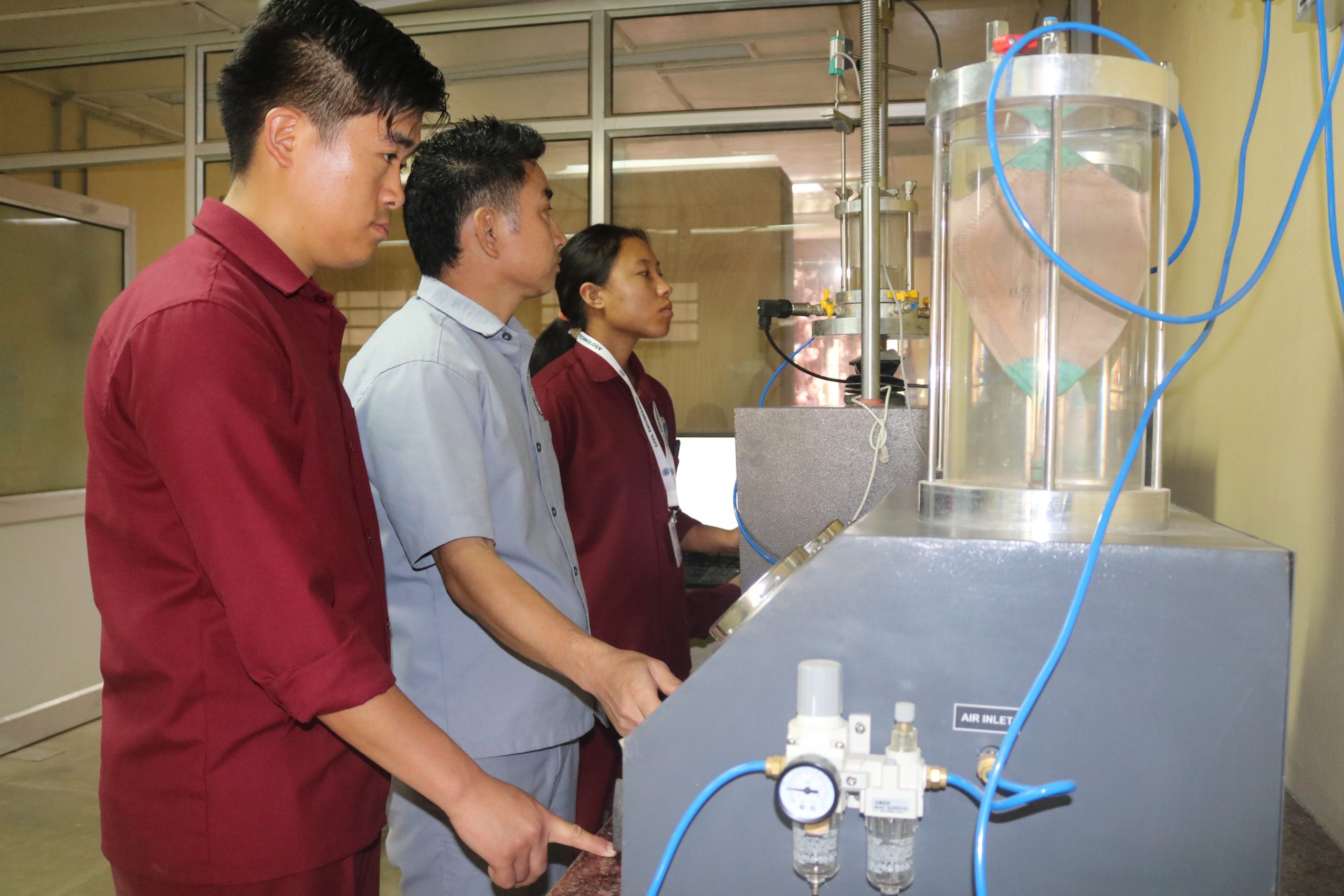
Highway/Soil Mechanics Lab
A Highway/Soil Mechanics Laboratory in a College of Science and Technology allows students to study the physical and engineering properties of soils and materials used in road construction. In this lab, students perform tests such as soil classification, compaction, permeability, Atterberg limits, and strength testing, as well as evaluate aggregates and asphalt used in highways. Through hands-on experiments, they learn how soil behavior affects foundation stability, pavement design, and overall infrastructure safety, helping them apply classroom theories to real-world civil engineering and transportation projects.
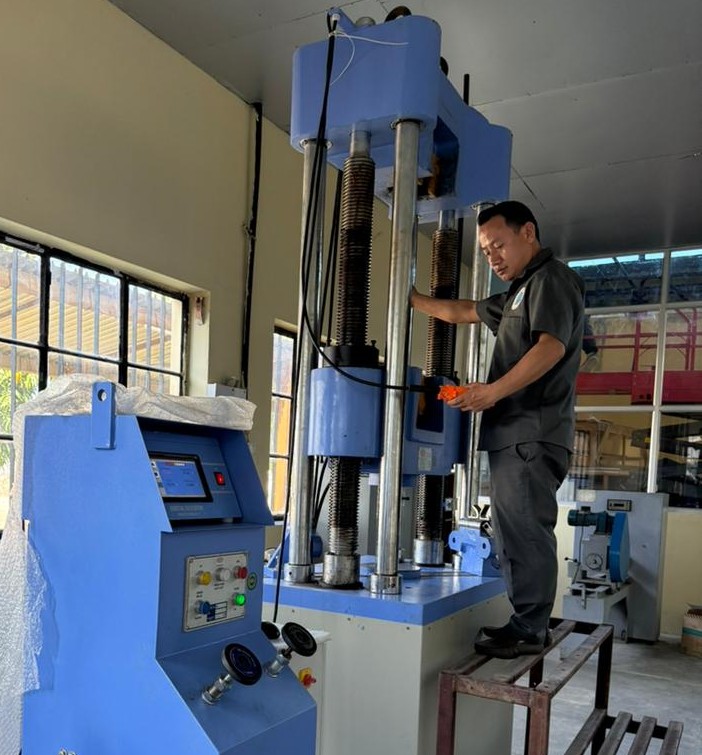
Structure and Concrete Lab
The Structure and Concrete Laboratory support teaching and learning by providing students with hands-on experience that connects theoretical lessons to real-world engineering practice. Through experiments in material testing, concrete mix design, and structural behavior, students develop essential technical, analytical, and problem-solving skills. The lab also promotes teamwork, safety awareness, and industry-aligned competencies, strengthening students’ understanding of structural principles and preparing them for professional work in construction and engineering.